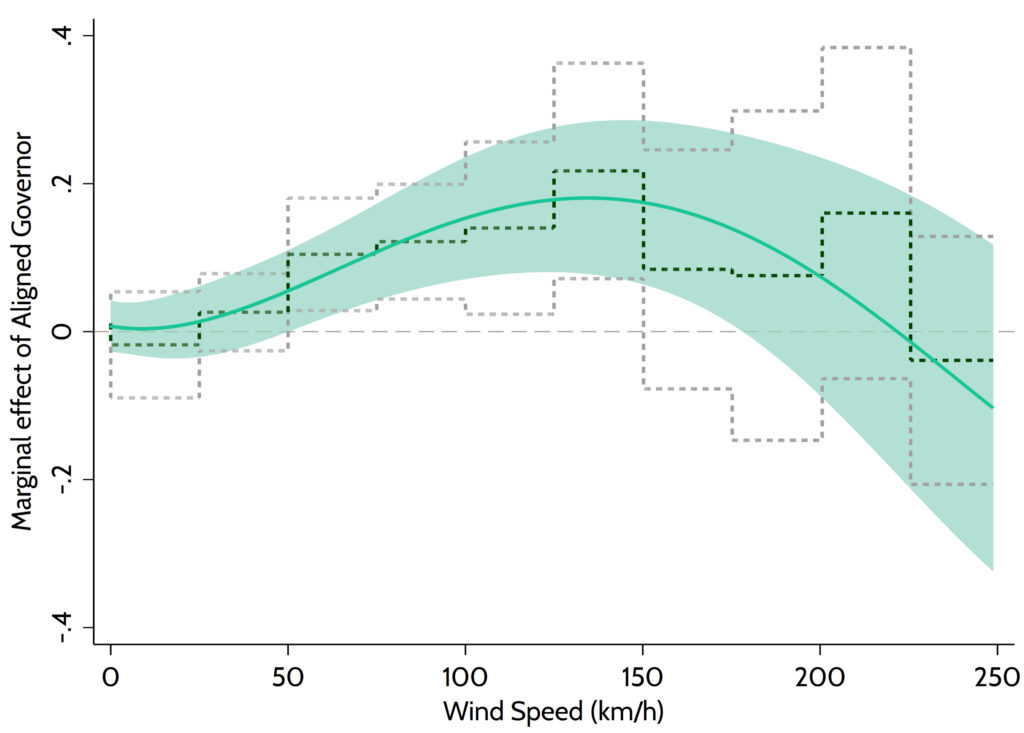In the big picture
My recent and current projects contribute to explaining…
- political favoritism and biased decision-making.
- the rise of separatist and nationalist parties.
- interactions of natural events, politics, and economics.
As a sports fan, in which situations would you be most afraid of a biased referee? Probably when it’s neck and neck and the right decision is not obvious.
There is an analogy with political decision-making. In Disastrous Discretion, we show that political favoritism in disaster relief provision is prevalent in ambiguous situations. Medium disaster intensities provide the best opportunities for politicians to exert biased allocations – the fairness of their decisions is less obvious for the public to judge than for very strong or very weak disaster impact.
„Vertriebene Sudetendeutsche warten mit Handgepäck auf ihren Abtransport“ (upper picture) by Sudetendeutsche Stiftung is licensed under CC BY-SA 1.0. „Refugees crossing into Poland, 7 March 2022“ (lower picture) from the website or social media of the Ministry of Internal Affairs of Ukraine is licensed under CC BY 4.0.
Displacement and immigration have immediate consequences for societies and can shake up the political landscape. But do we still see traces of that generations later? In a current project, we use a quasi-experiment from Germany to examine how past and present interact.

